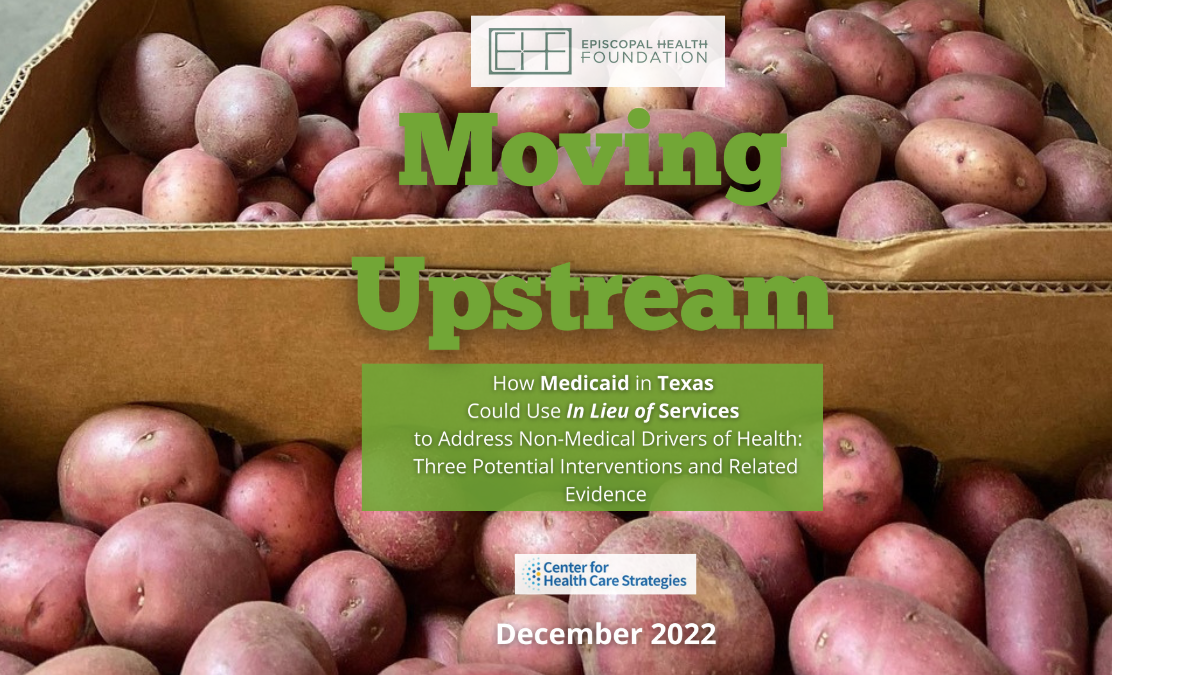New formal guidance released from the Centers for Medicare and Medicaid Services (CMS) now gives Texas Medicaid an official option to cover programs addressing non-medical drivers of health.
This guidance comes after EHF’s latest research report “Moving Upstream” shows detailed evidence on how those programs can yield improved health outcomes AND financial savings.
Researchers found that non-medical programs covered by Medicaid that worked to address three areas – asthma triggers in homes, lack of access to affordable healthy food, and housing issues — not only resulted in health benefits like fewer ER visits and less sick days, but also showed significant Medicaid total cost of care savings.
“This is a game changer that could improve the health and wellness of Texans most in need in an entirely new way,” said Dr. Ann Barnes, EHF’s president and CEO. “As a philanthropy, we’ve funded asthma remediation projects and food as medicine programs that have shown great health improvements, but they were limited to patients of a single clinic or area. This report describes a great opportunity for Medicaid in Texas to cover these non-medical programs on a much larger scale across the state with sustainable funding.”
The report is part of 2022 legislative recommendations from the Texas Value-Based Payment and Quality Improvement Advisory Committee that urge state lawmakers to expand “upstream” Medicaid programs to cover non-medical drivers of health – the conditions in which people live, work, play, and age that influence their health and wellness.
